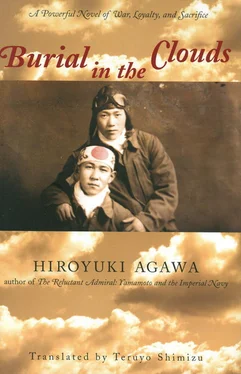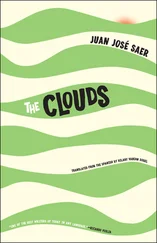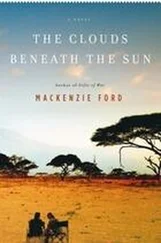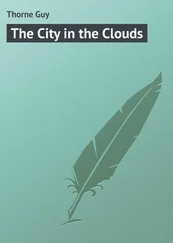It is now half past eight. Excuse my scribbled note. So long.
Farewell note 2.
To Kashima.
The clouds are my tomb.
Setting sun, grace my epitaph.
My dear old friend, how are you faring? Remember our time in Kyoto, when we studied and had such fun together. We hashed it all out over cups of sake. Those were the good hours, the precious hours. Oh—Otsu, Yamashina, the seaweed offshore at the town of Nabari, the shallows of the Furukawa River. Even after we joined the navy, fate saw to it that we lived under the same roof, never failing to accompany each other. My friend, have you ever thought about that? Close as we were, we seldom had a quiet, heart-to-heart talk. There may be no end to regret, once I am gone, but I hope this letter will do, anyway, as a reminder of something.
My friend, keep yourself well.
Morning, July 9th Jiro Yoshino

October, Showa 20 (1945)
Parents of Jiro Yoshino
Takebuchi, Yao-cho
Naka Kawachi-gun, Osaka
I can only imagine how lonely and inconvenient life must be at your evacuation camp. Already two months have passed since we lost the war, and obscure feelings have me utterly in their grip. After being demobilized, I left my hometown and set out on an aimless, wandering journey with the help of a small sum of money, and of some friends and acquaintances. I do intend to return to the campus in Kyoto, but I don’t feel like doing it just yet. I lost every one of the three friends who joined the navy with me in the middle of our academic pursuits. The shock is too great for me.
As for the final hours of your son’s life, I do not know the from the stories of his comrades who were stationed at the same base, once the world calms down. So far, I have checked closely the back-issues of newspapers, and the like, from the period, but I find no articles that appear to concern your son’s mission. I noticed, however, that on the morning of July 10, a U.S. task force approached mainland Japan, and that a total of more than eight hundred planes raided airfields in the Kanto district in several waves. Judging from the date of the farewell note I received from your son, I would say that he probably embarked on a special attack mission that day, and that he dived into a U.S. aircraft carrier at sea to the east of Japan. I do not know why you have not received an official report from the navy. Possibly it was mislaid in the confusion of defeat. At any rate, it is utterly inexcusable, and I am very sorry for that.
I am staying in a town called Ubara, on the eastern coast of Chiba Prefecture. In any case, I believe your son’s body rests somewhere far from this shore. I am certain that he reposes in peace at the horizon, where ocean and sky meet, with the sea for his grave, and his epitaph written in the clouds. It is a beautiful shoreline, with its many twists and turns, and its sheer cliff rising. Japanese silverleaves grow thick on the cliffside, producing their yellow flowers. The coastline here probably touches on the arc of the great circling route to America, as I often see what look like large American steamers sail by offshore. A storm seems to be at hand. The clouds are disturbed and the water is troubled, though the sun occasionally appears.
I enclose a clumsy poem that I wrote along this shore, to be placed by his picture. I will certainly visit you when I get back to Kyoto, sometime in the future, and talk with you at length.
With kindest personal regards.
—Dedicated to the late Jiro Yoshino
Today I climbed
This headland mountain
Where the southern winds blow in.
And I bowed deeply at your grave,
You who shall never come back.
The ocean;
The cradle of the deep;
Your grave.
Toward me, under blue-tinted clouds that seethe and break,
How the vast blue currents heave!
On that day
The struggle swallowed you up.
And now that peace has come
A thousand waves caress you,
And your epitaph gleams in the clouds.
Ah, that epitaph:
It quickens again
The old days, with a sweet pang,
The days we talked together over cups of sake,
The good hours, the precious hours.
Southern winds blow in
From the sea,
Agitating the grass at my feet
And my heart also.
Facing the ocean, I call your name, helpless.
TUTTLE PUBLISHING
Tokyo • Rutland, Vermont • Singapore
First English-language edition published by Tuttle Publishing, an imprint of Periplus Editions (HK) Ltd., with editorial offices at 364 Innovation Drive, North Clarendon, Vermont 05759 U.S.A.
All rights reserved. No part of this publication may be reproduced or utilized in any form or by any means, electronic or mechanical, including photocopying, recording, or by any information storage and retrieval system, without prior written permission from the publisher.
English translation © 2006 Teruyo Shimizu
“KUMO NO BOHYO” by Hiroyuki Agawa
Copyright © Hiroyuki Agawa 1956.
All rights reserved.
Original Japanese edition published by Shinchosha Co.
This English-language edition published by arrangement with Shinchosha Co.,
Tokyo, in care of the Tuttle-Mori Agency, Inc., Tokyo.
Library of Congress Cataloging-in-Publication Data
Agawa, Hiroyuki, 1920-
[Kumo no bohyo. English]
Burial in the clouds / Hiroyuki Agawa; translated by Teruyo Shimizu.—1st ed. p. cm.
ISBN-13: 978-0-8048-3759-0
ISBN-10: 0-8048-3759-7 (pbk.)
I. Shimizu, Teruyo, 1967- II. Title.
PL845.G3K713 2006
895.6’35—dc22
2006015263
ISBN-10: 0-8048-3759-7
ISBN-13: 978-0-8048-3759-0
ISBN: 978-1-4629-1418-0 (ebook)
Distributed by
North America, Latin America & Europe
Tuttle Publishing
364 Innovation Drive
North Clarendon, 05759-9436 U.S.A.
Tel: 1 (802) 773-8930
Fax: 1 (802) 773-6993
info@tuttlepublishing.com
www.tuttlepublishing.com
Asia Pacific
Berkeley Books Pte. Ltd.
61 Tai Seng Avenue, #02-12
Singapore 534167
Tel: (65) 6280-1330
Fax: (65) 6280-6290
inquiries@periplus.com.sg
www.periplus.com
First edition
10 09 08 07 06 10 9 8 7 6 5 4 3 2 1
Printed in Canada
TUTTLE PUBLISHING ®is a registered trademark of Tuttle Publishing, a division of Periplus Editions (HK) Ltd.
Kisama, ore, and omae mean, respectively, “you,” “I,” and, again “you.” They have a rugged, masculine sound in Japanese and would be more commonly used among soldiers, sailors, and so on. (In Japanese there are a number of equivalents for any given English personal pronoun; their usage can vary according to gender, degree of formality, and so on.)
The China Incident is a reference to the fighting between Japanese forces and nationalist Chinese forces in July of 1937 at the Marco Polo Bridge (near Beijing), which sparked the Sino-Japanese War (1937-45).
These words all have either slightly feminine or informal connotations, hence their disuse in military contexts. Boku is a first-person pronoun (“I”); kimi, a second-person pronoun (“you”); ne is in this context roughly equivalent to “to be”; tono, a suffix sometimes applied to names as an honorific.
Читать дальше













